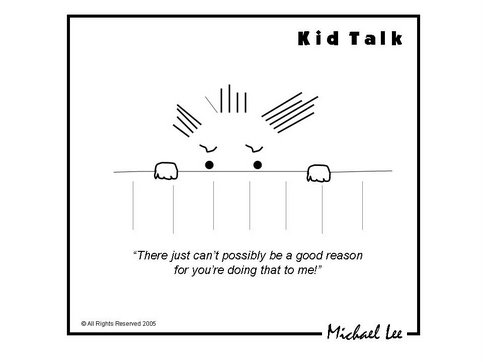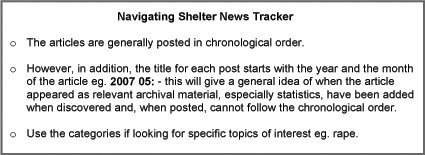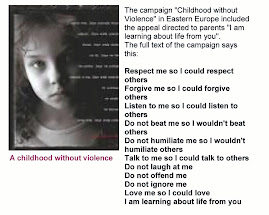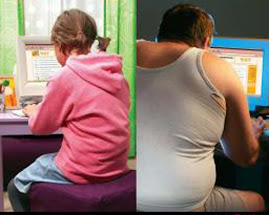Today, on World Day for the Prevention of Child Abuse, YAM PHUI YEE and NASA MARIA ENTABAN draw attention to strategies being planned to step up the fight against child abuse in Malaysia.
Today, we remember the number of young persons who were given treatment they did not ask for nor deserve, and we look back at the plans and hopes announced by relevant parties to address the problem, and which have yet to be realised.
First, there is the amendment of law that will enable video recording of statements by abused children to be used in court. As present laws do not allow this, the proposed Evidence of Child Witnesses Act became the talk among child advocates three years ago.
Under this practice, which involves using video recording facilities at Child Protection Units (CPU), children are interviewed by one person instead of a group of adults (normally comprising a doctor, police personnel, welfare department officer and deputy public prosecutor). The recording would ideally replace the child in court proceedings.
This practice, which is used in countries like Britain, enables the child to give an account under a less stressful situation, often revealing information and nuances helpful to the case.
Up to Oct 2006, there have been 970 cases recorded on tape. Unfortunately, these recordings are not valid in court.
“The Act is still at the Bill stage in parliament. We don't know when it will be gazetted,” said Chief Insp Nor Riza Maishah from CPU, Kuala Lumpur.
“Some deputy public prosecutors know about (the recording) and have asked for it to study the child's character and formulate the best approach for the case,” she said.
“While investigation is important, what the child says in court determines the charge. When the child is overwhelmed by fear, he becomes speechless or misses important details. I hope this recording can be used as first oral evidence,” she added.
At present, there are three CPUs in Kuala Lumpur, Penang and Johor respectively, and the police are also looking into setting up a unit in each state and engage officers who can speak the local tongue.
From the 10 pioneers who attended training in 2003, there are now more than 50 officers who are qualified to be interviewers and technicians when more CPUs are set up.
“(When the law is gazetted,) the Royal Malaysian Police dah cukup bersedia dah (really prepared),” said Chief Insp Nor Riza.
Secondly, a register for children who need protection was proposed some time ago but there has yet to be a proper register that keeps tab of cases and which is easily retrievable.
Without such a facility, repeated cases could go unnoticed and, worse, no one would know the actual figure of child abuse cases in the country.
Datuk Prof Dr Mohd Sham Kasim who heads the Suspected Child Abuse and Neglect (Scan) team said that in a severe abuse case, it is often a repeated one but in the absence of a tracking system, it is not discovered when the case is reported at a different location.
A spokesperson for the Social Welfare Department (JKM) revealed that the number of child abuse cases reported with the police, hospital and its department does not tally. JKM, whose officers act as a protector for abused children, is the ideal point for this centralised registry.
“The police do not hand over their reports to us if they don't need our assistance. The cases should still come to us, even if the abused child has died, because there is a danger of the perpetrator abusing other children in the family,” the spokesperson said.
Other instances of cases not being brought to JKM is when the child goes back home to the abuser or when the child dies as a result of the abuse.
With about 1,000 cases reported to JKM annually, a well-equipped resource centre and a consistent way of documenting the data are needed.
“There are medical-legal issues when it comes to writing down who the perpetrator is (prior charge),” said the source.
Also, it has to be a well thought-out system since a typo error on a person’s name or change of address could lead to a case being undetected.
If the responsibility of defending abused children lies on the shoulders of JKM alone, the battle is a frustrating one. Thus, it is encouraging members of the public to become volunteers with its Child Protection Team (CPT), which cares for and protects the children. It also provides activity centres for children to go to.
“The role of the teams is to be the eyes and ears of JKM. So far they are effective – their programmes include motivational seminars, campaigns, and counselling sessions,” the JKM spokesperson said.
What is required of the volunteers is that they must be from the area and are able to blend in and approach the victim and the family. The work calls for commitment, not just lip service or short-lived passion.
“It takes up too much time. There are just a few doing everything – organising talks for parents, programmes for kids, taking them for trips – and they are all volunteers,” said Vijayakumari Pillai, who used to serve in a CPT.
“It needs very committed volunteers. Some volunteers take up a case, and after they know how it works they drop out.” Tackling child abuse does involve a committed and concerted effort at all levels.

Vijayakumari: ‘CPT needs very committed volunteers’





No comments:
Post a Comment